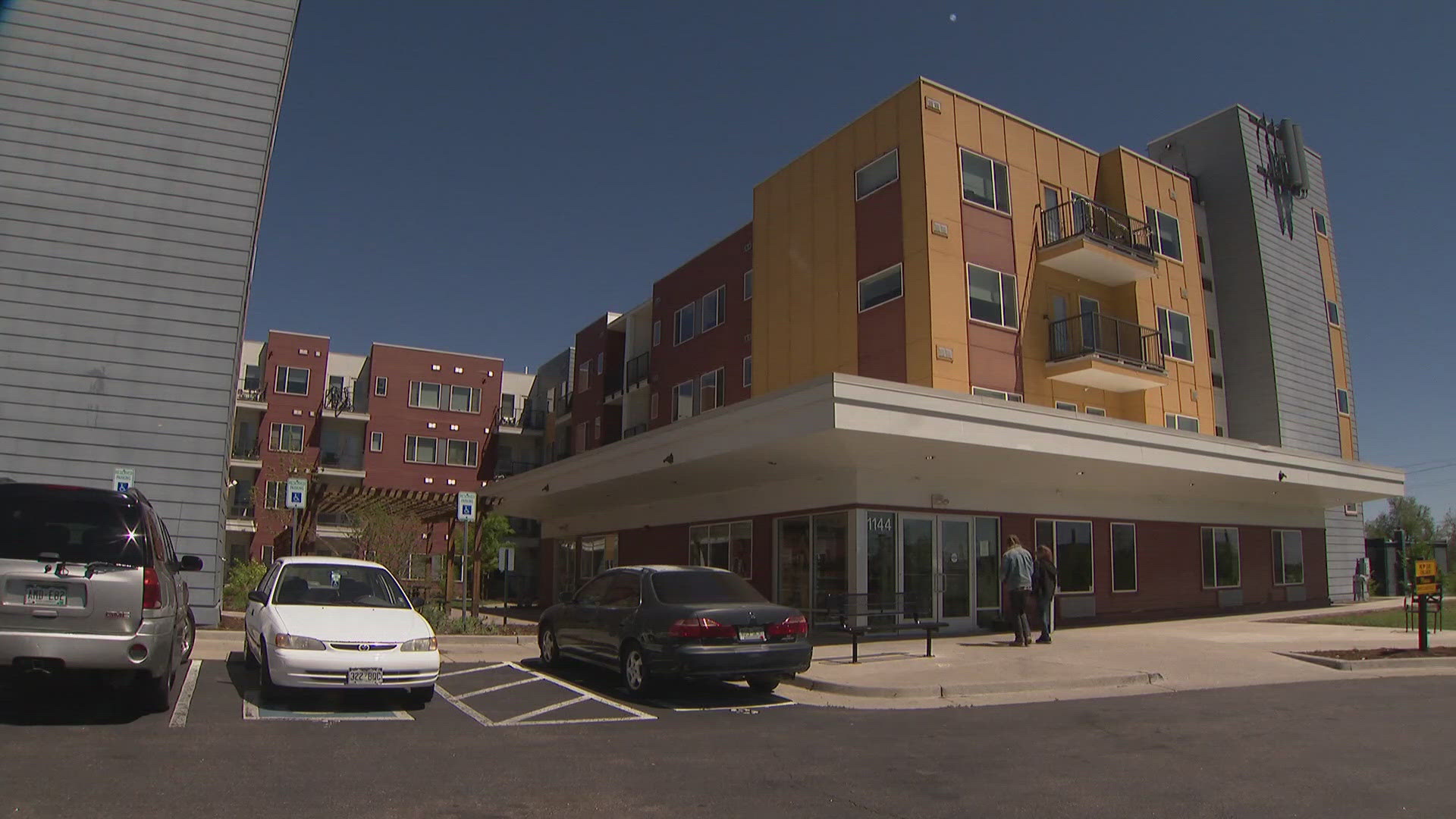DENVER — Denver’s plan to end homelessness relies on people finding permanent housing. Right now, far more people are exiting the city’s hotel shelters to be homeless again rather than move in their own apartment.
"I always say that finding people housing is the easy part," said Brittany Katalenas, the founder of social services provider B-Konnected. "The tough part is actually keeping them housed."
B-Konnected works with landlords across the city to provide social services to vulnerable renters. Her goal is to use technology to avoid negative outcomes like evictions. She’s teamed up with Denver City Councilmember Shontel Lewis to survey people living in homeless hotel shelters in Denver about what they need to succeed.
"If we’re looking at you as a wholistic person, yeah, you need good housing, but you also need a sense of belonging, you need to feel safe, you need to feel clean, you need to feel fed," Katalenas said.
In a city that’s made its mission solving homelessness, housing is only the first step.
"We just expect, hey, get someone off the street. Put them in housing. The housing first model. That’s all that we need," Katalenas said. "But there is so much more. The need is housing stability."
Of the nearly 1,200 people who’ve moved into the city’s homeless hotel shelters so far, only 30 have found permanent housing through leased apartments of their own. That's compared to the 147 that left the shelters to go back to living on the streets, according to the City of Denver's All In Mile High program.
"We work with people who’ve been homeless into housing. We know that they may be struggling with misuse of substances. We know that they may have criminal backgrounds. Great, we can get them into housing. But why do they lose housing?" Katalenas said.
The survey they’re hoping to implement at shelters around the city asks simple questions like do you feel safe, are you hungry, and even if you have pictures on your wall. They say the answers can reveal whether someone feels welcome in a community and what services they need to succeed. The changes from living on the street to moving into an apartment can be jarring.
"Meeting people where they are and with their needs is really important," said Grace Burgwyn, a developer and landlord in Denver.
At her building in Ruby Hill, she knows a fridge and a microwave and a roof don’t always bring peace or guarantee success.
"When we remove the ability for our residents to determine what they view as success and what they view as valuable, then we automatically set ourselves up for failure," Burgwyn said.
Housing is a big step. Keeping people housed is just as important.
"You often times don’t know how to interact with a community like this, so how can we give you the tools and the skills to be successful?" Katalenas said.
SUGGESTED VIDEOS: Next with Kyle Clark

